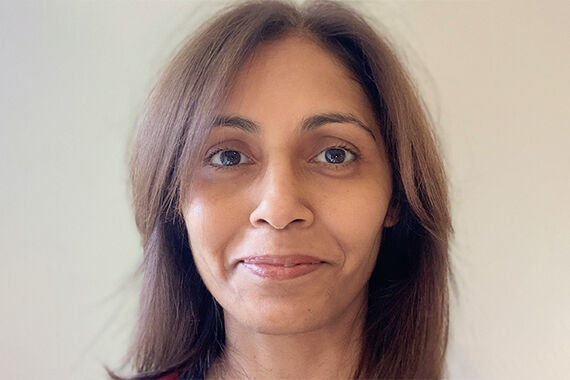
This site is intended for health professionals only

Professor Aruna Garcea, clinical director for Leicester City and Universities PCN and chair of the NHS Confederation’s primary care network advisory group, shares her thoughts about the next steps for PCNs
What do you think PCNs should be doing about the Fuller Stocktake?
For our PCN members, the Fuller Stocktake represents the next stage for primary care. It is about neighbourhood teams and system working. Our PCN members want to support and design how it can be implemented using their knowledge, skills and experience. Our network is creating design groups and trying to translate it into a detailed approach that PCNs and primary care can take to their integrated care systems (ICSs). It is something we need to embrace because we’re still fighting fire and not planning for resilience, and the Fuller Stocktake is about resilience.
How do you think PCNs should work with integrated neighborhood teams?
It’s about developing new functions that didn’t exist in core practice before. If you think about personalised care planning, population health management, trying to meet increasingly complex needs in the community, the lack of social care, the impact of the wider determinants of health and changing political climates, you need to create different solutions. Neighbourhood teams are the ring around the PCN. They are working relationships with our health and social care partners. From that we create multidisciplinary teams (MDTs) or micro-teams around patients, to push the personalised care agenda for patients that need it. But neighbourhood teams are also a platform for us to integrate and share care across a wider team, which we have done with our MDT working in cancer and safeguarding.
But neighbourhood teams would be a lot more formal – a place where we are living that integrated leadership and that integrated team. One size does not fit all because every geography is different, every PCN and its relationships with providers is different. We’ll find that creating neighbourhood teams to drive that part of the PCN and community work will feed into place, because the missing gap in the ICS is place-based working, and it’s lacking in general practice at the moment.
That’s the next step. We need to form teams and they should have a strategic position at place level to drive solutions.
Fuller also considered issues of urgent care versus continuity of care. How do you think it should be approached?
As a GP I came into this profession to look after my patients from cradle to grave. I believed in continuity and the benefits of the continuous relationship. However, I recognise that we have challenges that are threatening the very essence of the NHS, never mind general practice. We have worsening health inequalities as a result of the social care burden, the changing political landscape, the cost-of-living pressures. The umbrella cover of general practice has morphed, and there is an increasing complexity in general practice. Providing continuity isn’t as simple as it was 20 years ago. So I absolutely agree we need continuity of care with a provider. My challenge is that it may make sense to split away urgent episodic care that is non-complex. That will help relieve capacity so that I can focus on continuity of care with micro-teams, as I described.
I do believe there’s a space for continuity. I believe it involves personalised care planning and a risk stratification approach. I think patients should always have a continuous relationship with their practice because that’s their home for health and wellbeing. But I think we also need to take our patients with us in the multidisciplinary approach of new primary care and reassure them that they’re getting appointments with the wider care team because these guys are best suited for their need at the time. Also that we are maintaining continuity because we have data continuity through the electronic patient record and we have care continuity as a team in the practice.
What do you want to see from the Government and NHS England when the contract ends in 2024?
PCNs have been restricted in their development because of a restricted contract, and it’s been front loaded. We end up with a lot of demands that have been gradually withdrawn over the year. The contract is constantly being interrupted in its application. What I would like, as a representative of our members, is to tell policymakers that our PCNs want to have more autonomy, more flex, more influence at place and neighbourhood and to determine local solutions for their communities, backed by the principles of the DES, instead of the DES being prescriptive. I’d like to see how we’re going to improve estates. I’d like to understand how the additional roles reimbursement scheme (ARRS) will come back into the contract so we can be reassured of keeping these staff so we can plan long term. We’re in short-term territory at the moment, so it’s impossible to be strategic.
And also I’d like a recognition of the support that we need with IT, with intelligence and with leadership.
What impact is this having on ARRS in a PCN?
Because it’s so stop and start we’re always having to mitigate. There are PCNs that are having to think about redundancy planning in case there is a problem [with ARRS]. And this also affects the patients, because they are used to a level of access that didn’t exist before.
There is also quality and safety to consider because these staff are providing a huge amount of safety, particularly our pharmacists and social prescribers in terms of supporting those that are vulnerable at home. There are lots of softer consequences from that uncertainty, in terms of services that we’re providing.
I am keen to have that negotiation, get clarification and make sure there is a bottom-up approach this time round.